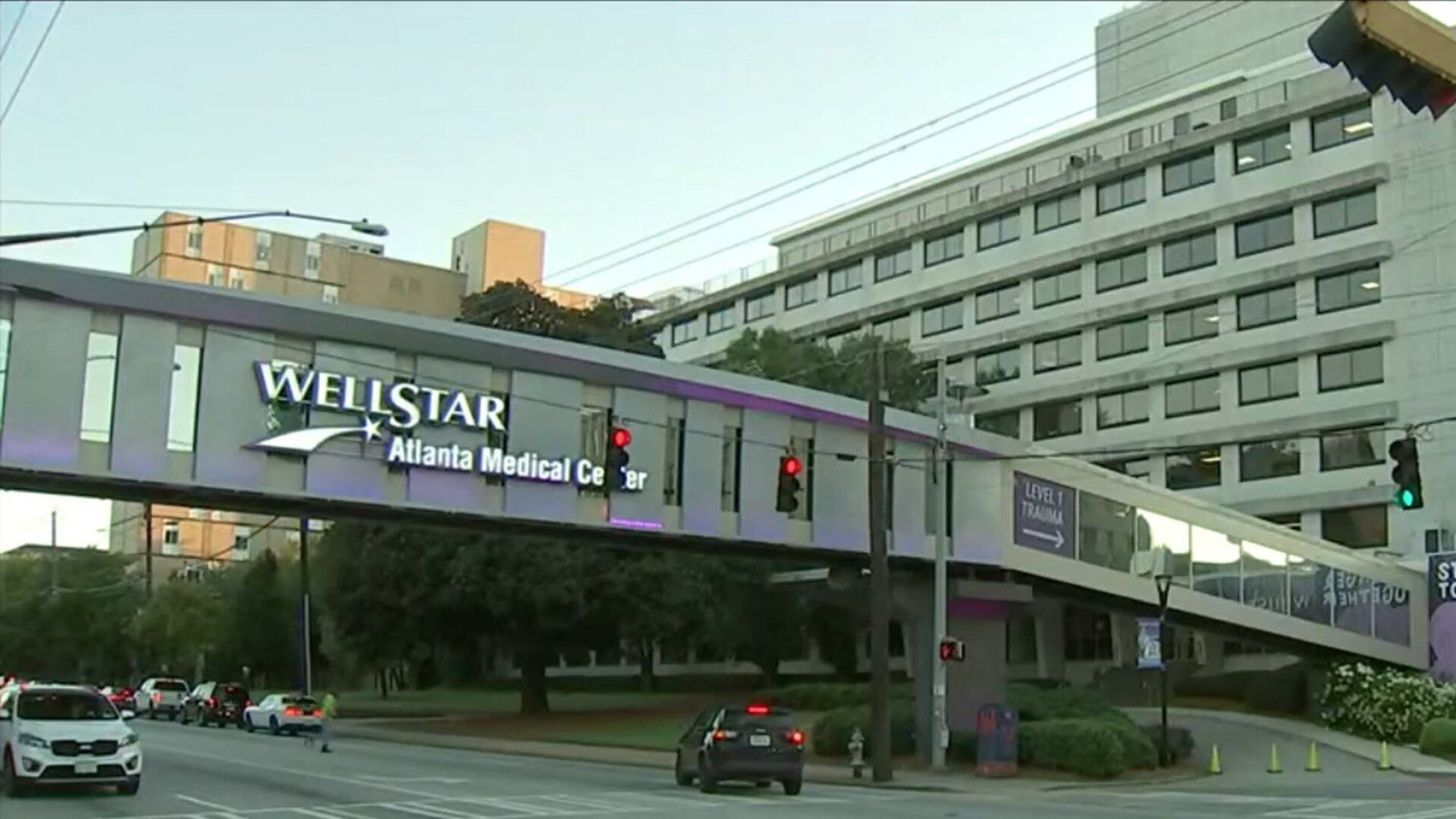
One of life’s equalizers is walking into a hospital, sick and in need of care.
The more urgent the medical issue, the less it should matter where we live, how much we earn, what color we are.
When illness hits, we don’t care about any of that.
And that is why all of Atlanta – and Georgia – should care about the unfolding crisis that is the pending closure of Atlanta Medical Center, known as AMC.
Why does it matter?
For starters, AMC is a critical part of our health care infrastructure – a system that was tightly stretched and undersized, even before Wellstar Health System announced it was closing the hospital.
AMC downtown is one of only two Level 1 trauma centers in this metro. Grady Memorial Hospital is the other one. Level 1 means a hospital is prepared 24/7 to respond to the most traumatic of injuries or even large-scale disasters that can flood emergency rooms with masses of people on a moment’s notice.
In an opinion piece last week, an ER physician and an Emory University professor of public health both explained well why we should all care: They noted metro Atlanta’s hard-won prominence as an A-list convention and tourism destination and reminded us that “many Atlantans can recall that Grady and AMC (then known as Georgia Baptist Hospital) represented half of the places where victims of the 1996 Olympic bombing received treatment.”
“With just one survivor safety net hospital (Grady), it is hard to imagine how the city might respond in the event of a future disaster — for example when World Cup games are played here in 2026,” the two wrote.
Metro Atlanta needs to be adequately prepared for the next mass-casualty event – for one day it will come.
In addition, there’s the everyday routine business of caring for sick human beings – many of them poor, in poor health and often lacking health insurance.
The recognition of these complex and interrelated needs is why The Atlanta Journal-Constitution continues to keep a watchful eye on the issue. And it’s why state and local officials are scrambling now to create a new package of fiscal aid to help Grady shoulder the extra load once AMC closes.
It’s fair, too, to question, whether the financial commitment of AMC’s parent company Wellstar is sufficient, based on resources the not-for-profit entity has on hand. The same can also be asked of the other large, nonprofit providers of medical care here.
The problems fueling the pending closure downtown are not new.
The latest announcement comes not long after the end of full-service medical operations earlier this year at AMC South in East Point, which became an urgent care facility. That move closed the only ER south of I-20 in Fulton County. And rural hospitals in Georgia have been closing for years, leaving other large gaps in our healthcare safety net.
Additional infusions of cash, be it federal funds sent to Georgia for COVID relief, or dollars from other sources, will be sorely needed.
Yet, we suspect even that may not be enough.
Yes, Gov. Brian Kemp’s office has been meeting with health care executives, community advocates and other elected officials to assemble “a long-term plan.” This newspaper reported Monday on AJC.com that a one-time aid package of nearly $200 million drawn from federal relief aid and philanthropic dollars was being discussed to help Grady shoulder the added load.
And, yes, Atlanta’s Mayor Andre Dickens has been demanding answers from Wellstar. As the mayor said, Wellstar has a responsibility to this community.
Dickens and others raising these questions are right. And comprehensive answers should be forthcoming from Wellstar. The city, region and state shouldn’t be facing this kind of last-second scramble to patch the large hole that’s opened in health care here.
Metro Atlanta and Georgia deserve better. We also need to take the long view.
Just like any business that expects to survive, we must think well ahead about what resources are required. Not only for today, but in the future.
Adequate healthcare demands even more devotion to building a permanent foundation.
Again, this isn’t simply a case of the self-sufficient aiding those in need. Or the deserving helping those somehow deemed undeserving.
Remember, all of us have a stake in maintaining a sound health care safety net.
Any of our households are one Downtown Connector car crash or other medical emergency away from requiring the critical care that AMC and Grady provide around the clock.
Democrat or Republican; Black, white or any other color; ITP or OTP; we may one day need a well-functioning Level 1 trauma center to save our lives.
Keeping this broad, needed community resource healthy will frankly require more than what we are doing.
The substantial need begs for a sustained strategy, as opposed to the short-term tactic of frantically shoveling money into the latest chasm that’s suddenly opened.
Yes, the fiscal scramble now to reinforce Grady is needed and welcomed.
But it can’t be all that gets done.
The state, counties and our cities need to put aside bullet-point politics and examine the sickly patient that is health care nationwide – and here.
In Georgia, that means the nearly 1.4 million people on this state who lack medical insurance, according to the Kaiser Family Foundation. Our uninsured rate is some 50% higher than the national average.
We’d be remiss in not noting that Georgia is 1 of 12 states that have not fully expanded Medicaid under the Affordable Care Act. We’re not alone in that stance, but other conservative, Southern states like Louisiana, Arkansas and Kentucky signed on years ago and have seen the overall health of their population improve as a result. Georgia has taken a limited step to expand Medicaid, but the broader problem is still with us.
The epidemic of hospital closures that we’re enduring across Georgia confirms a commonsense diagnosis:
We have much more to do.
The Editorial Board.


